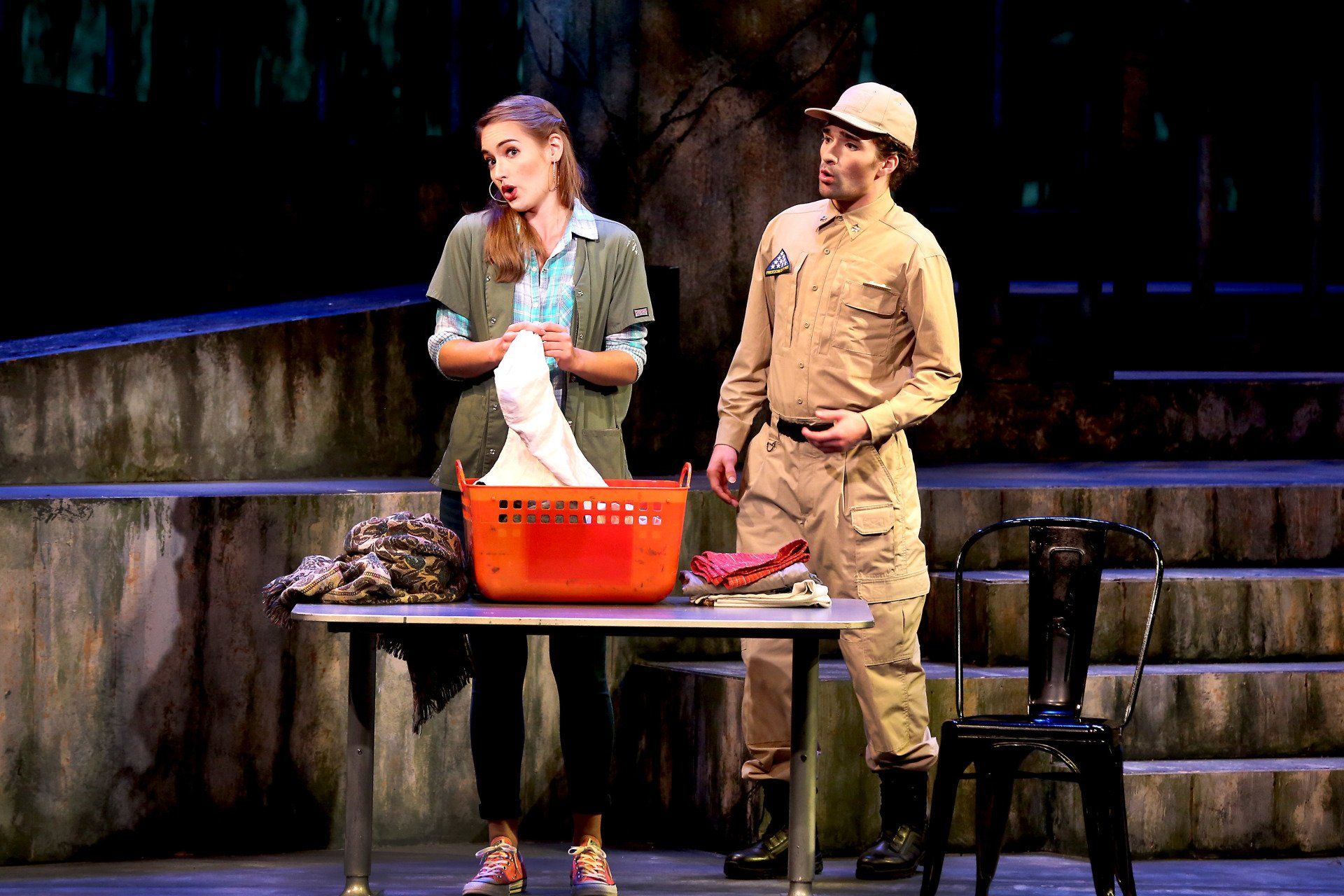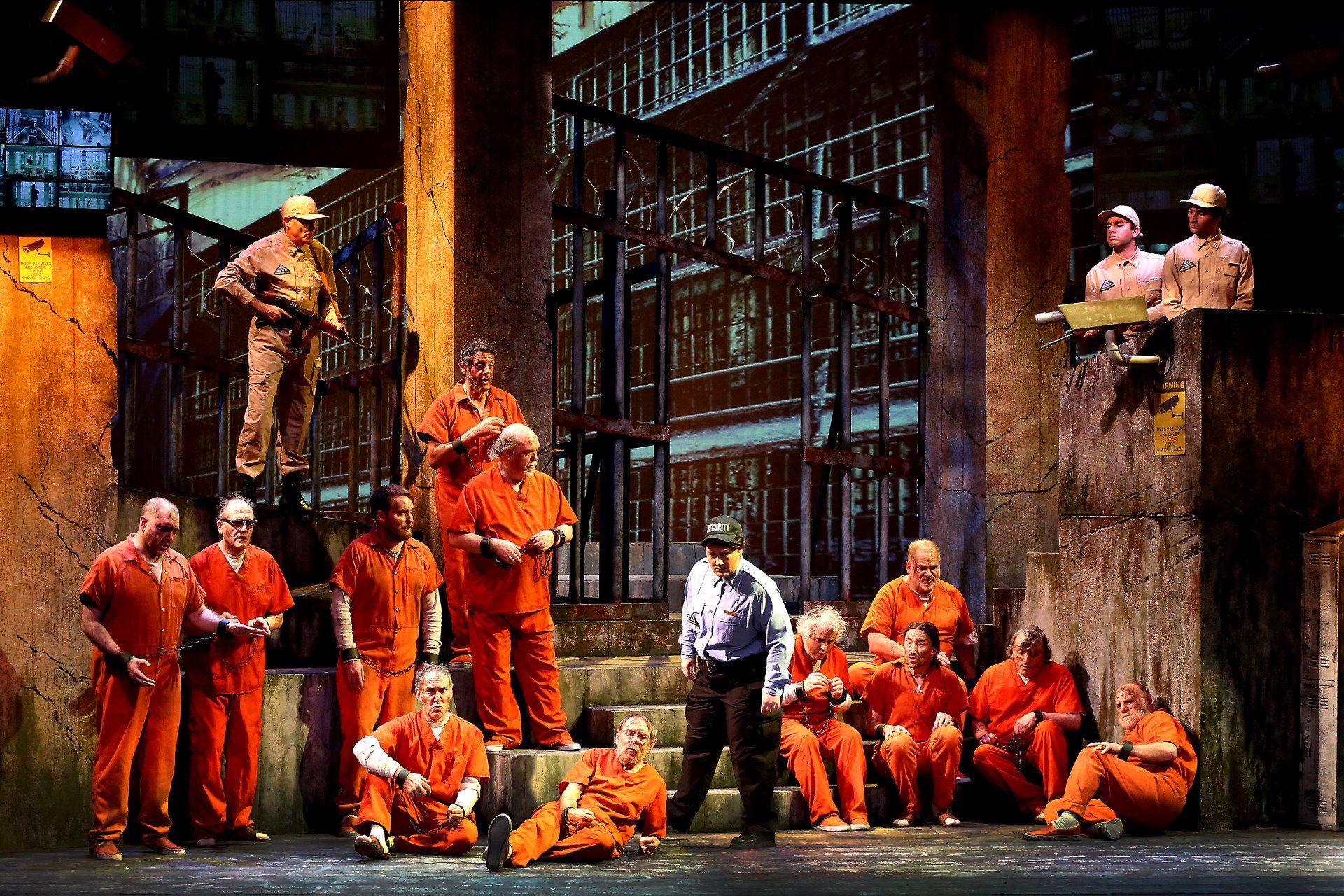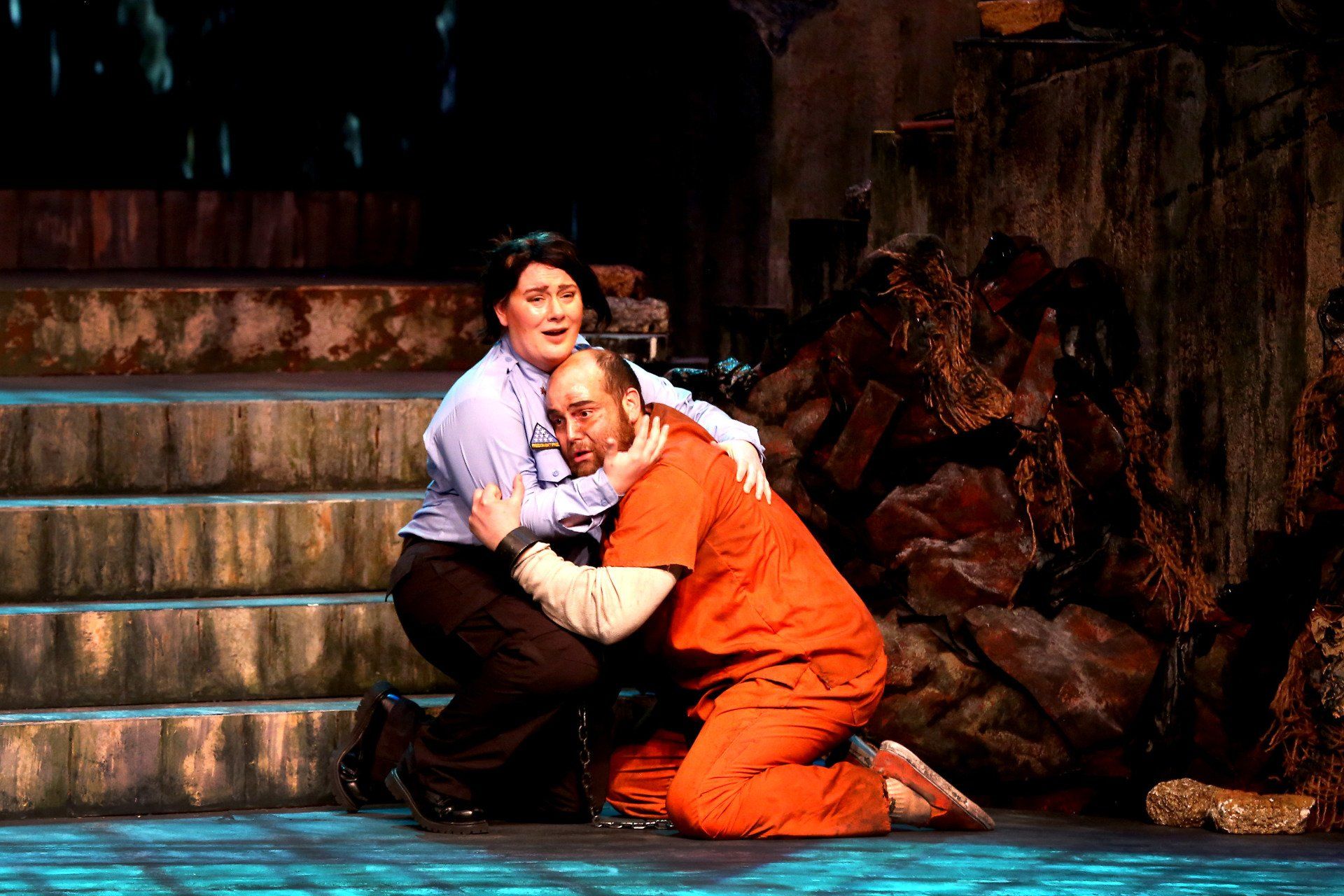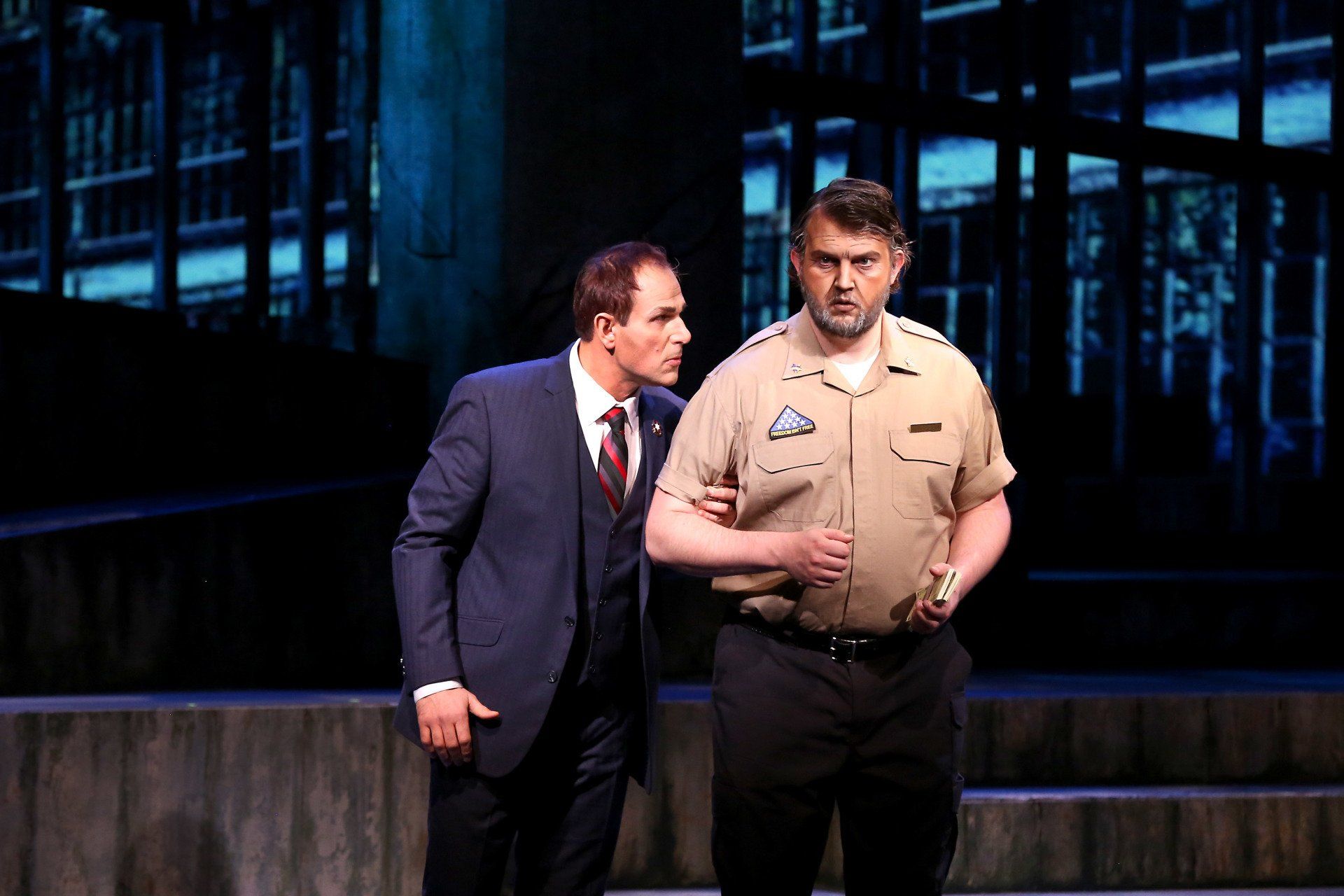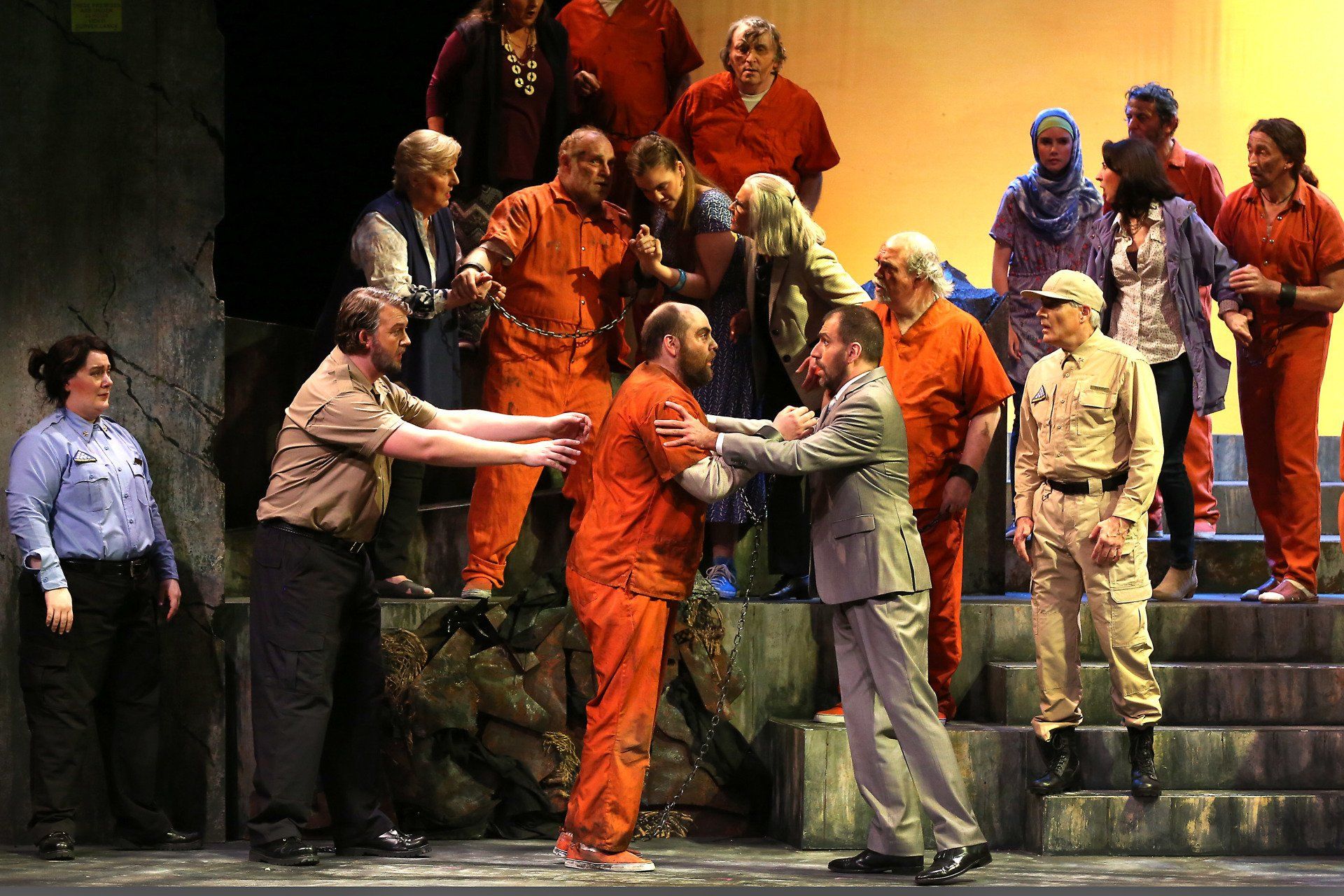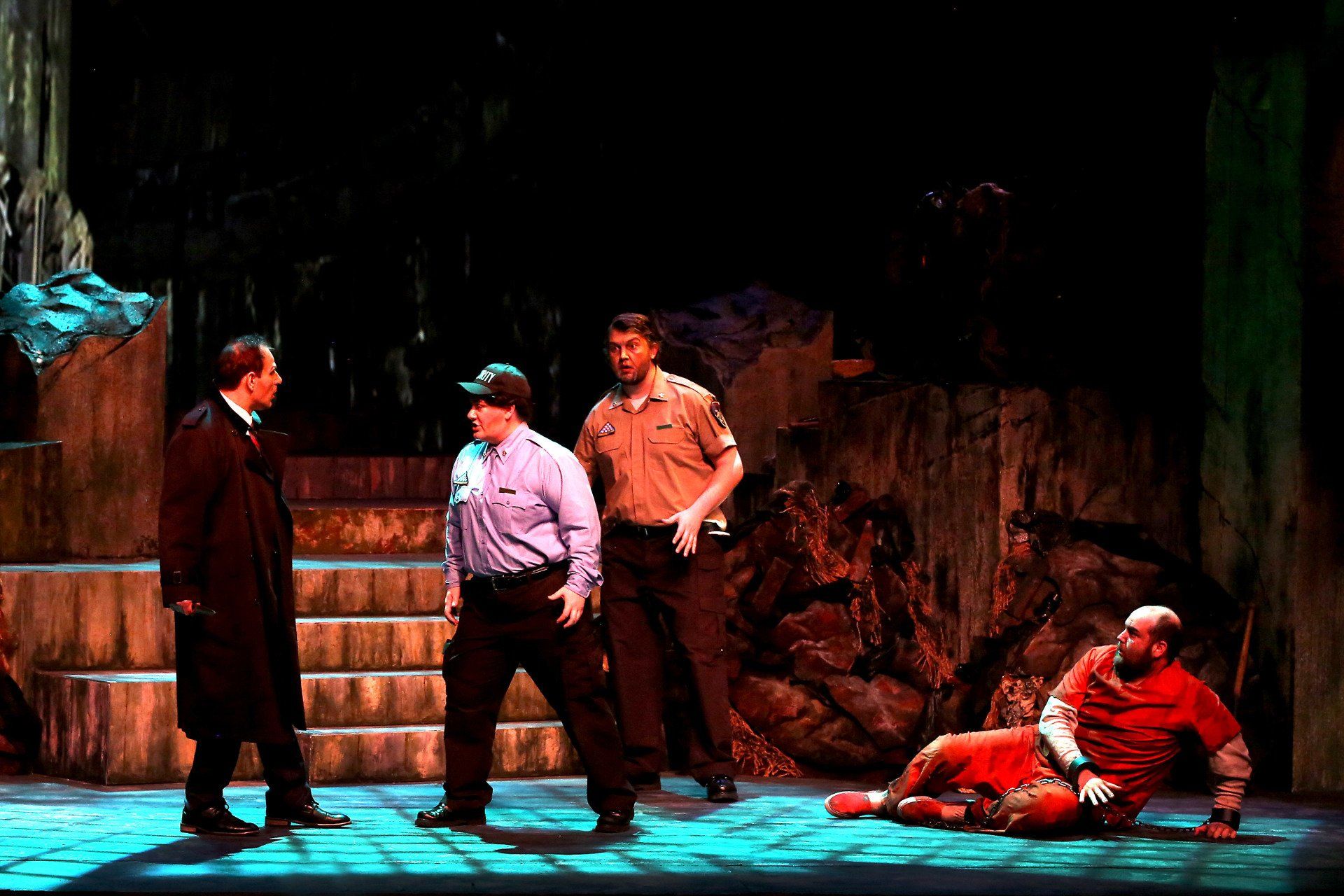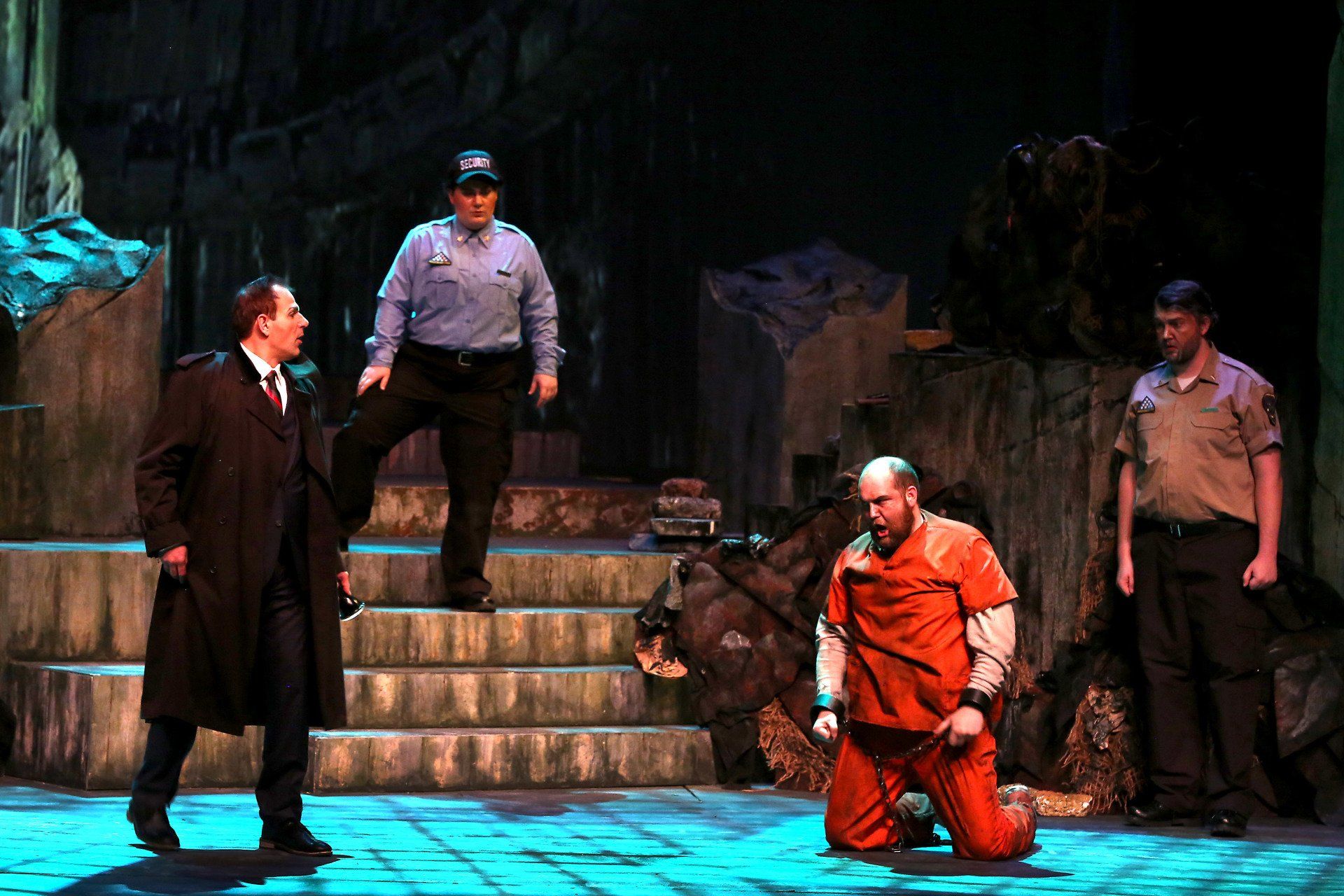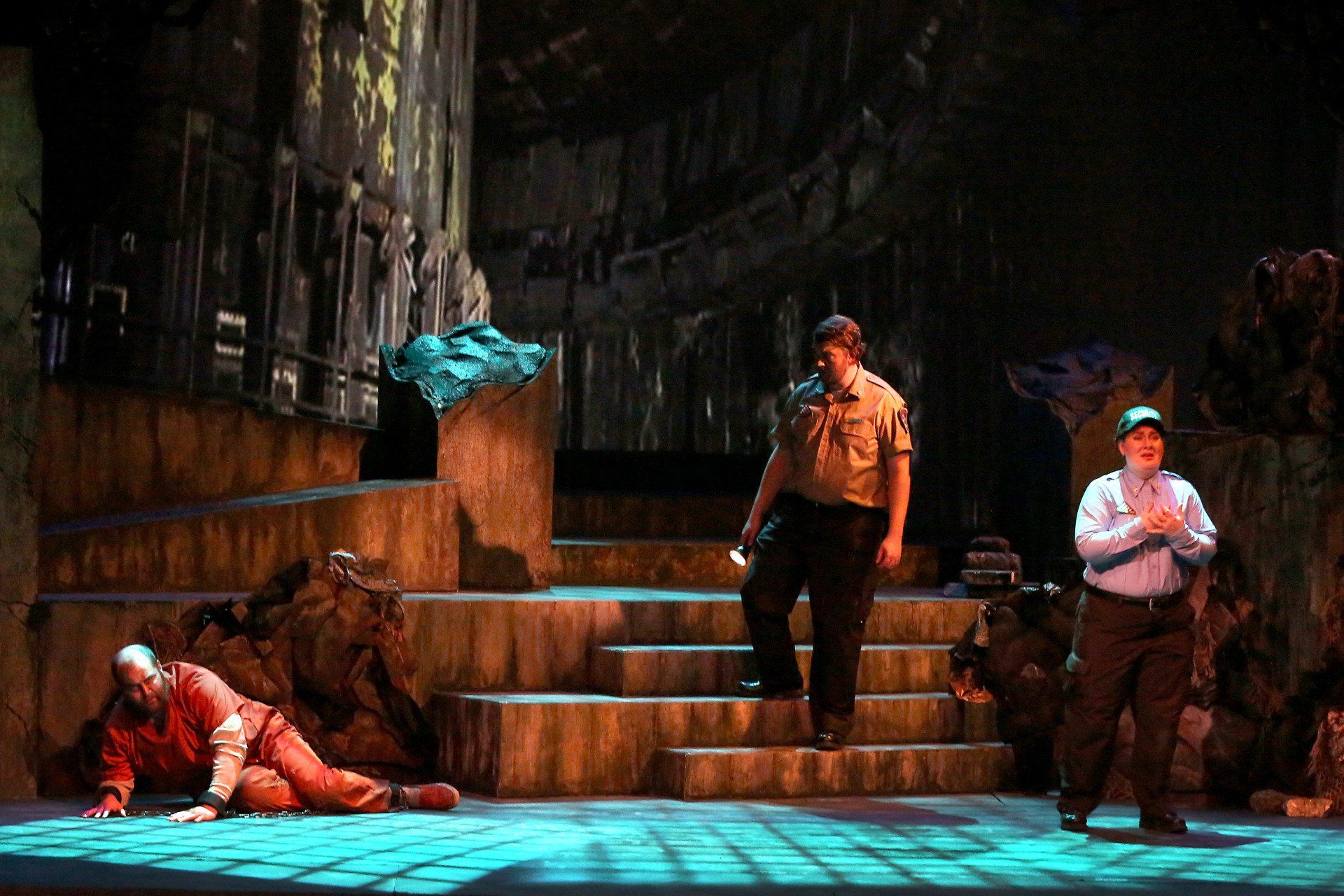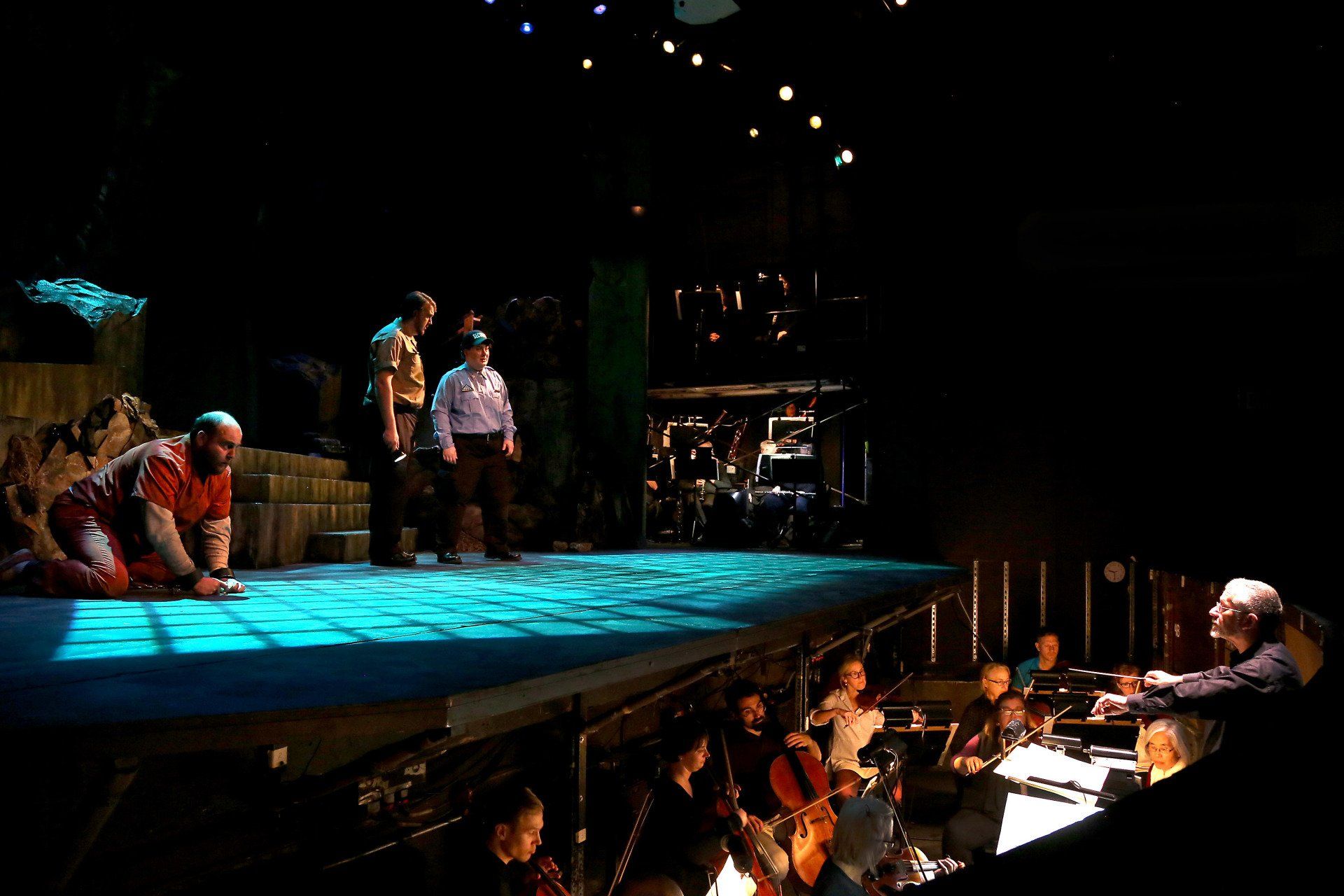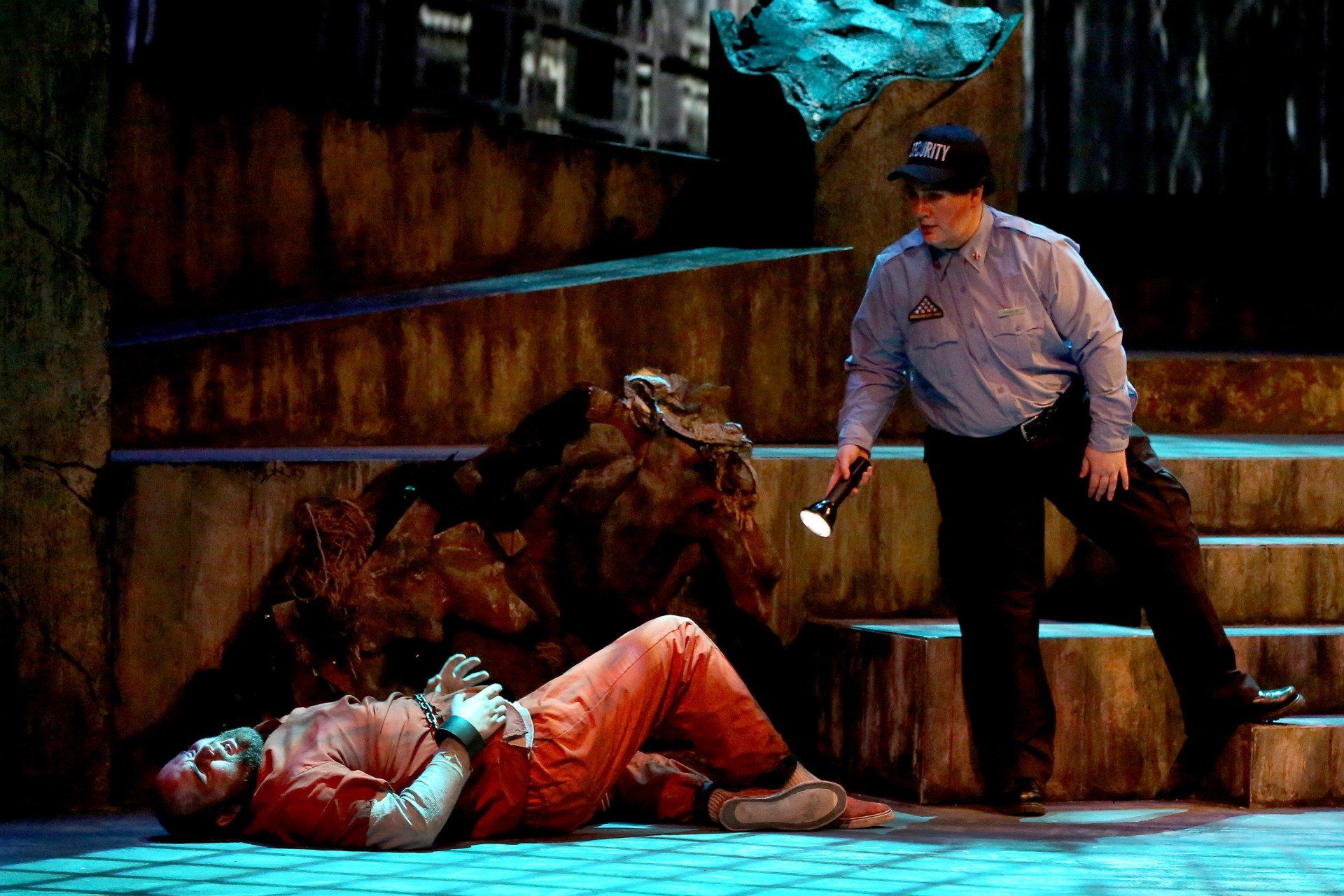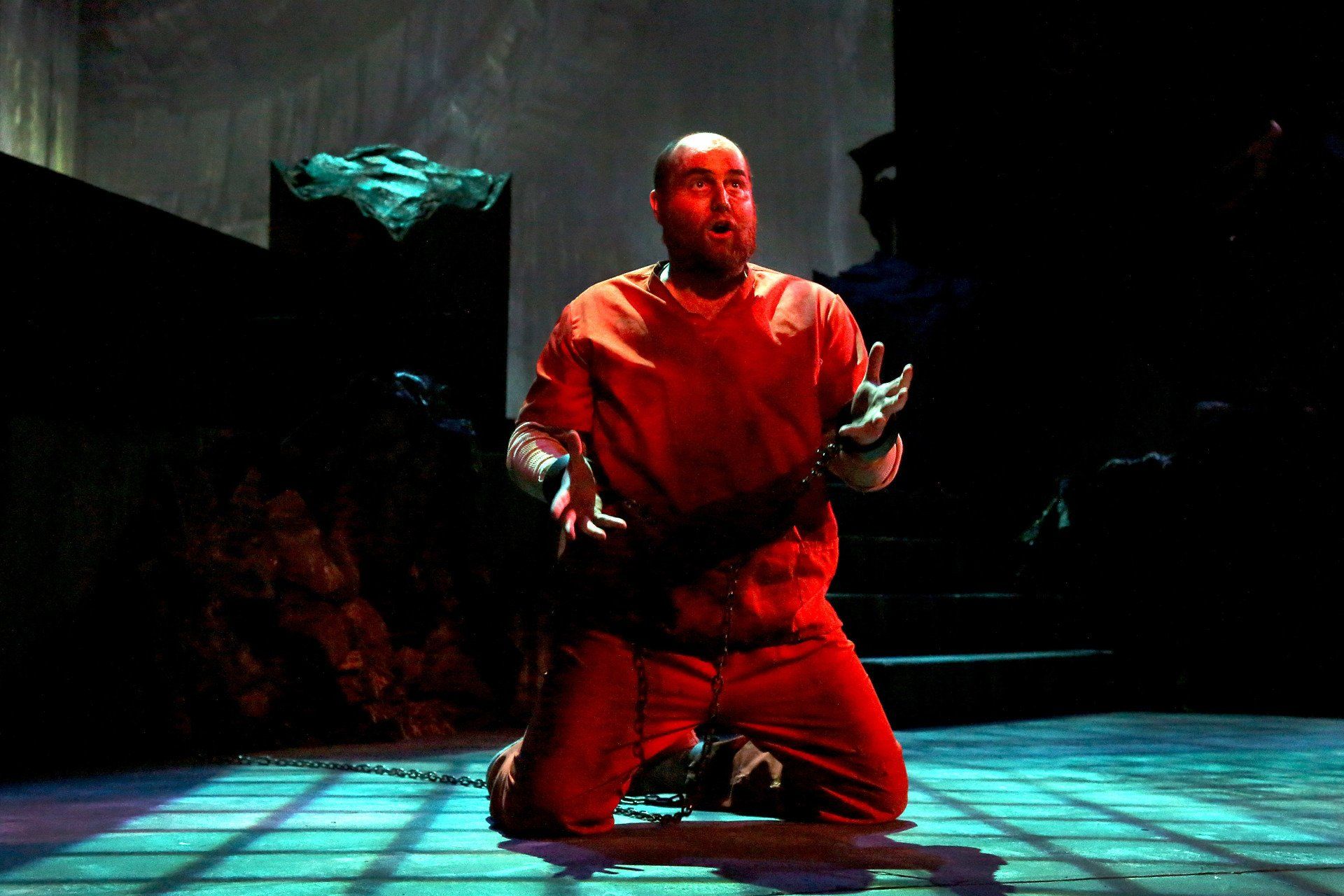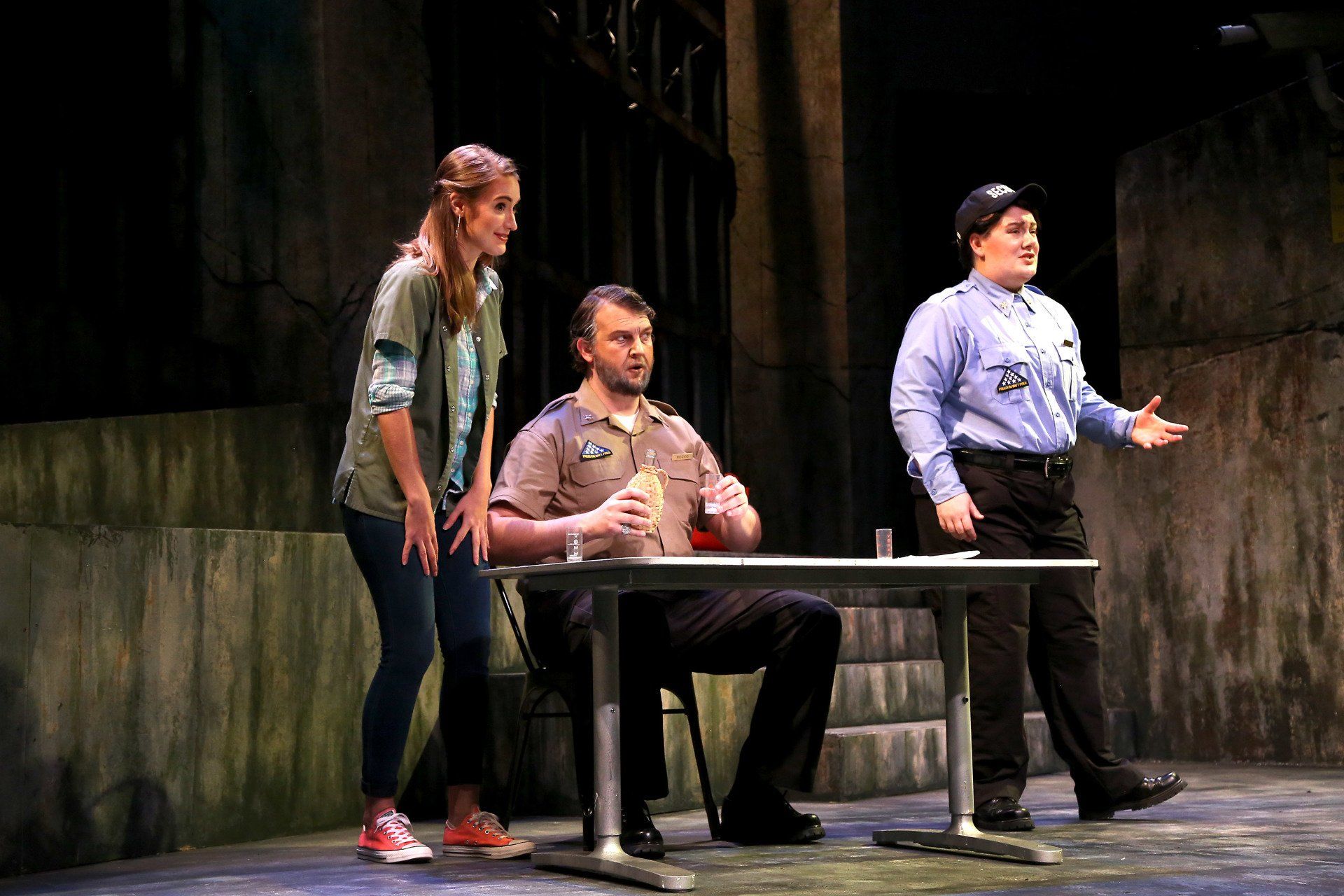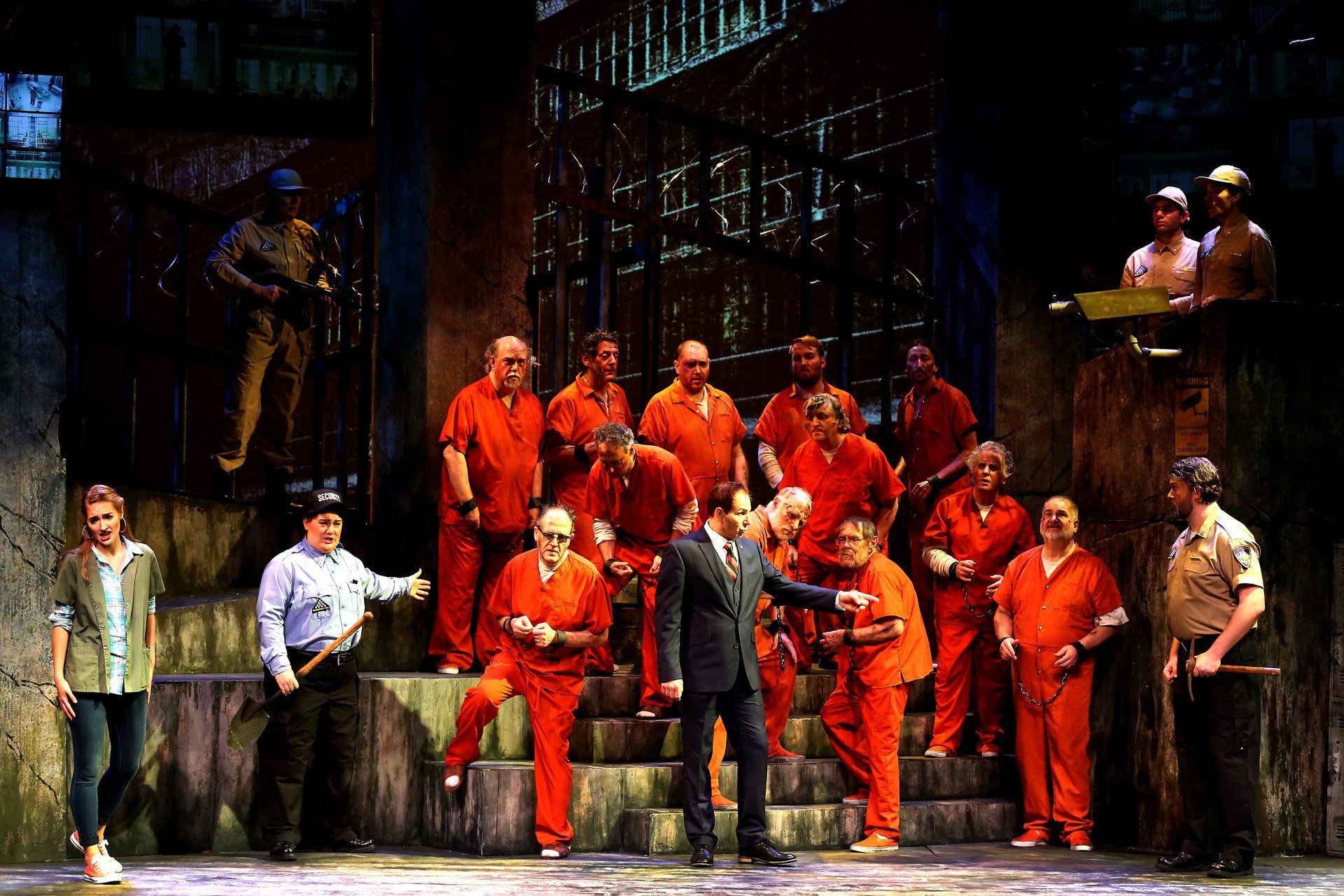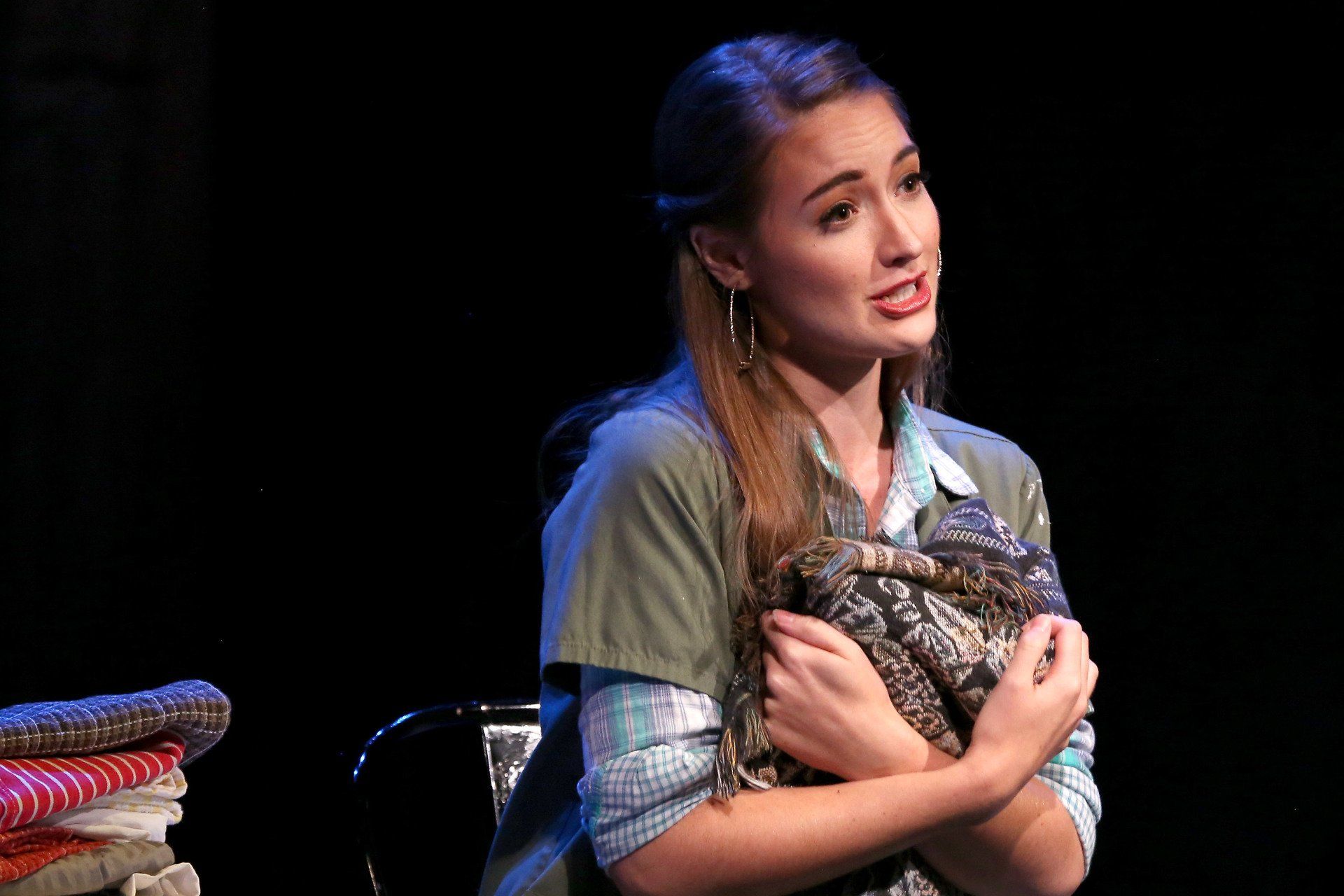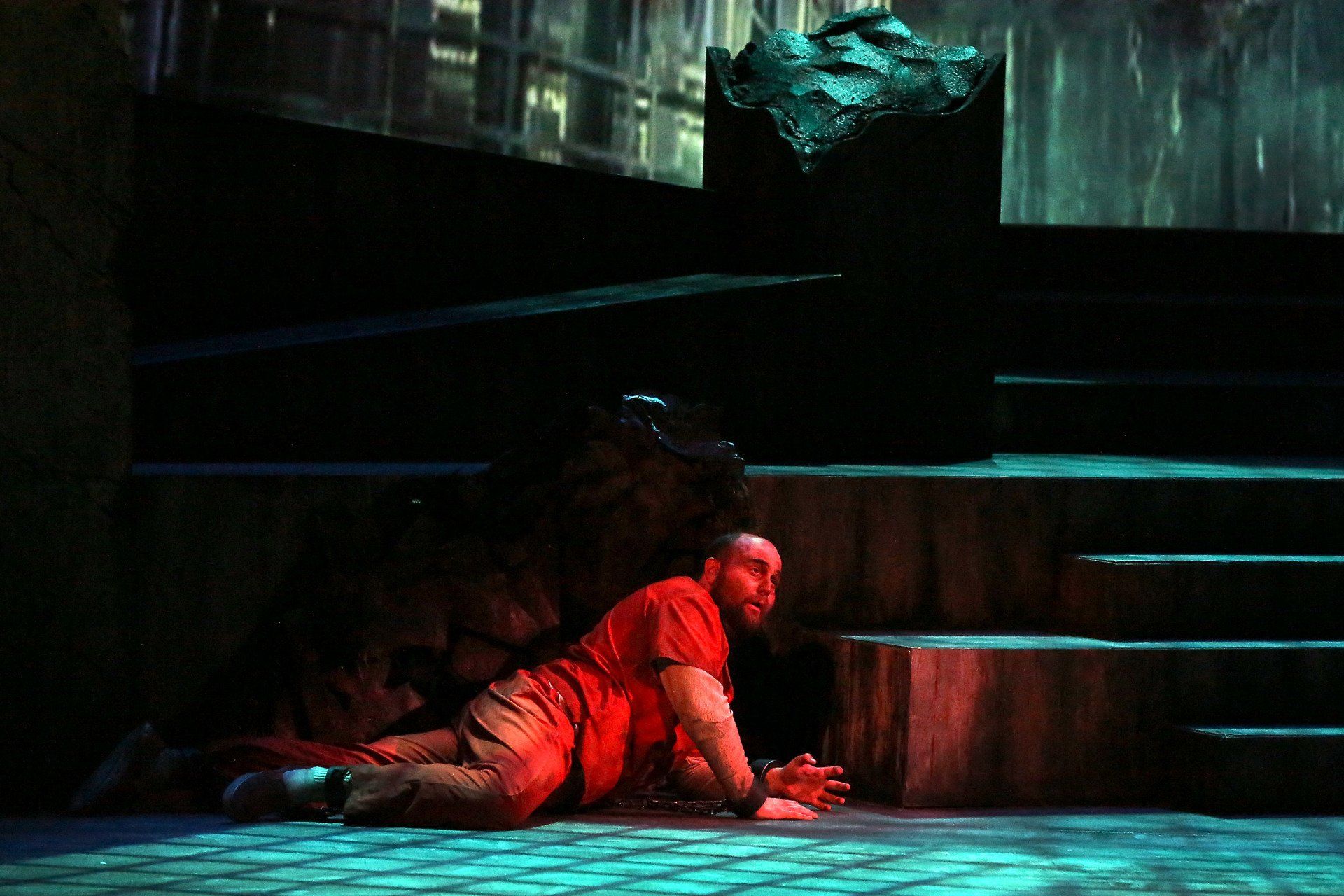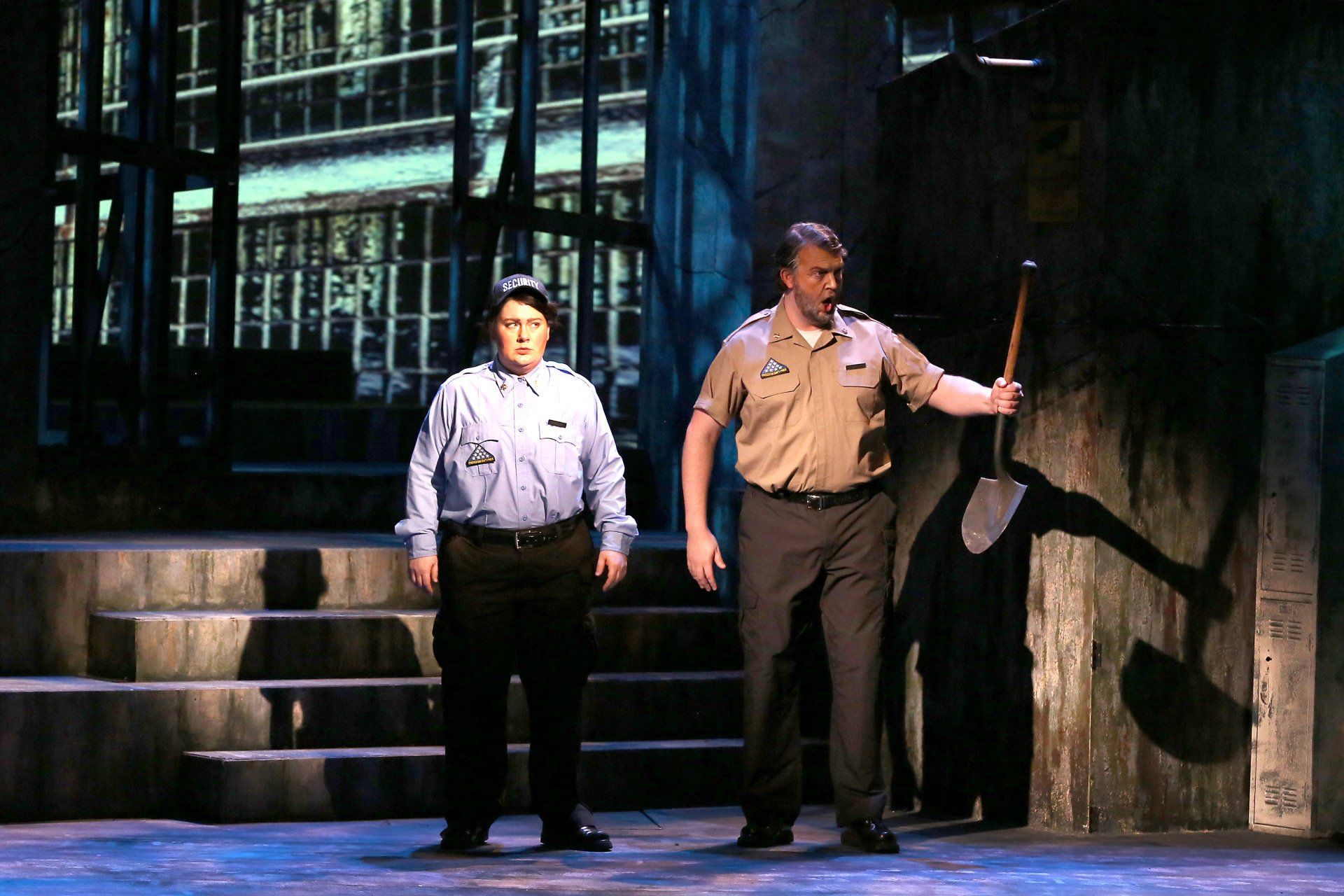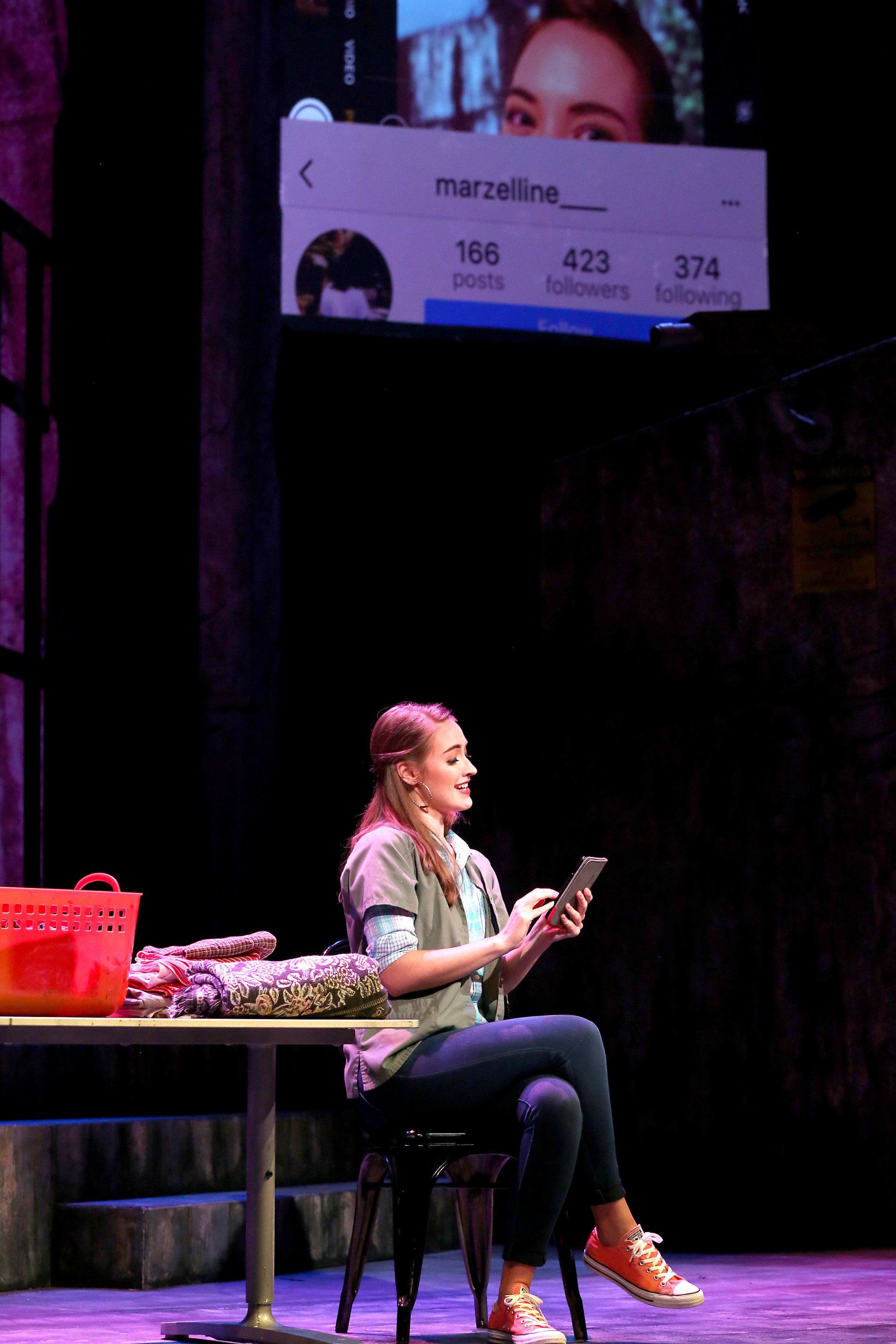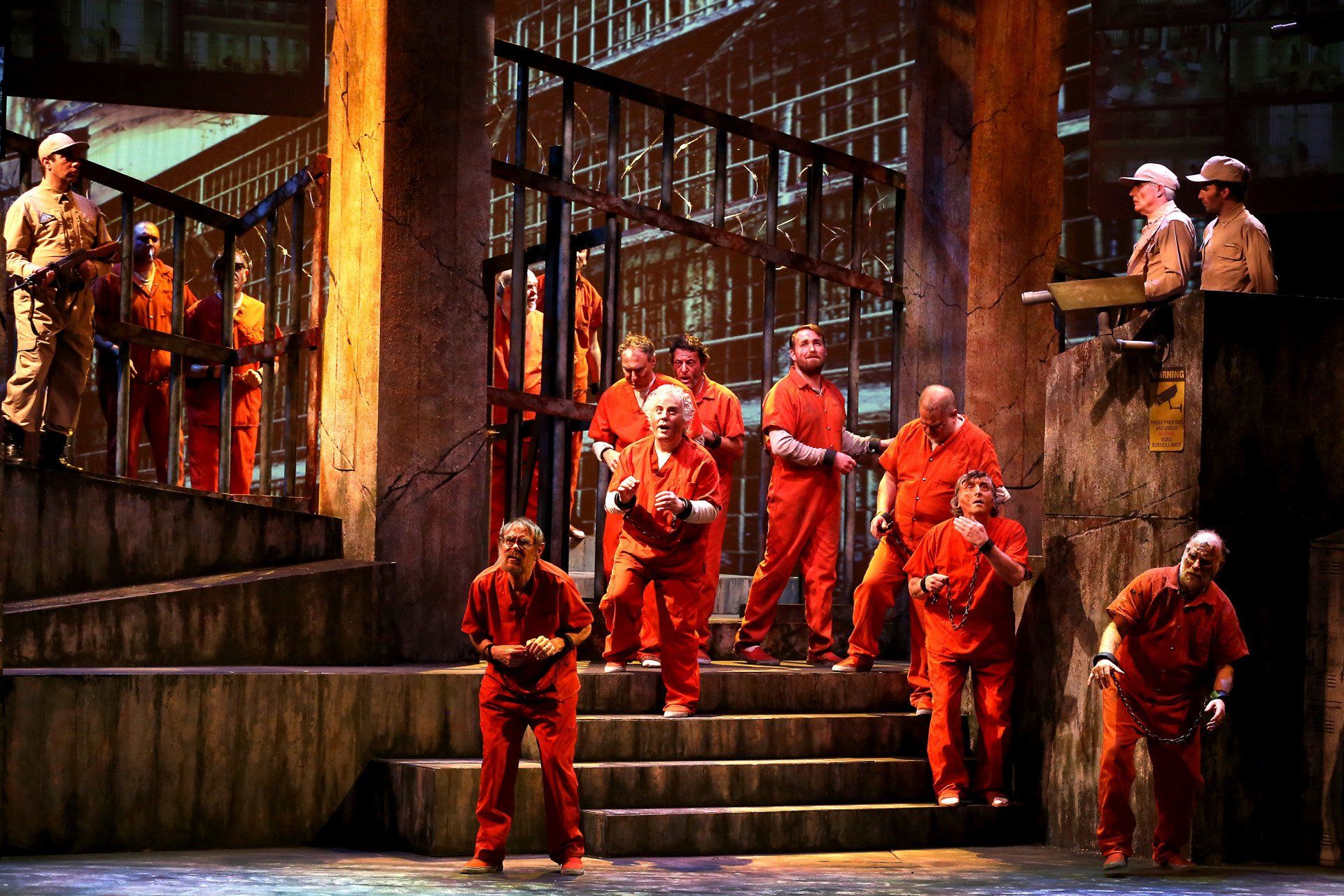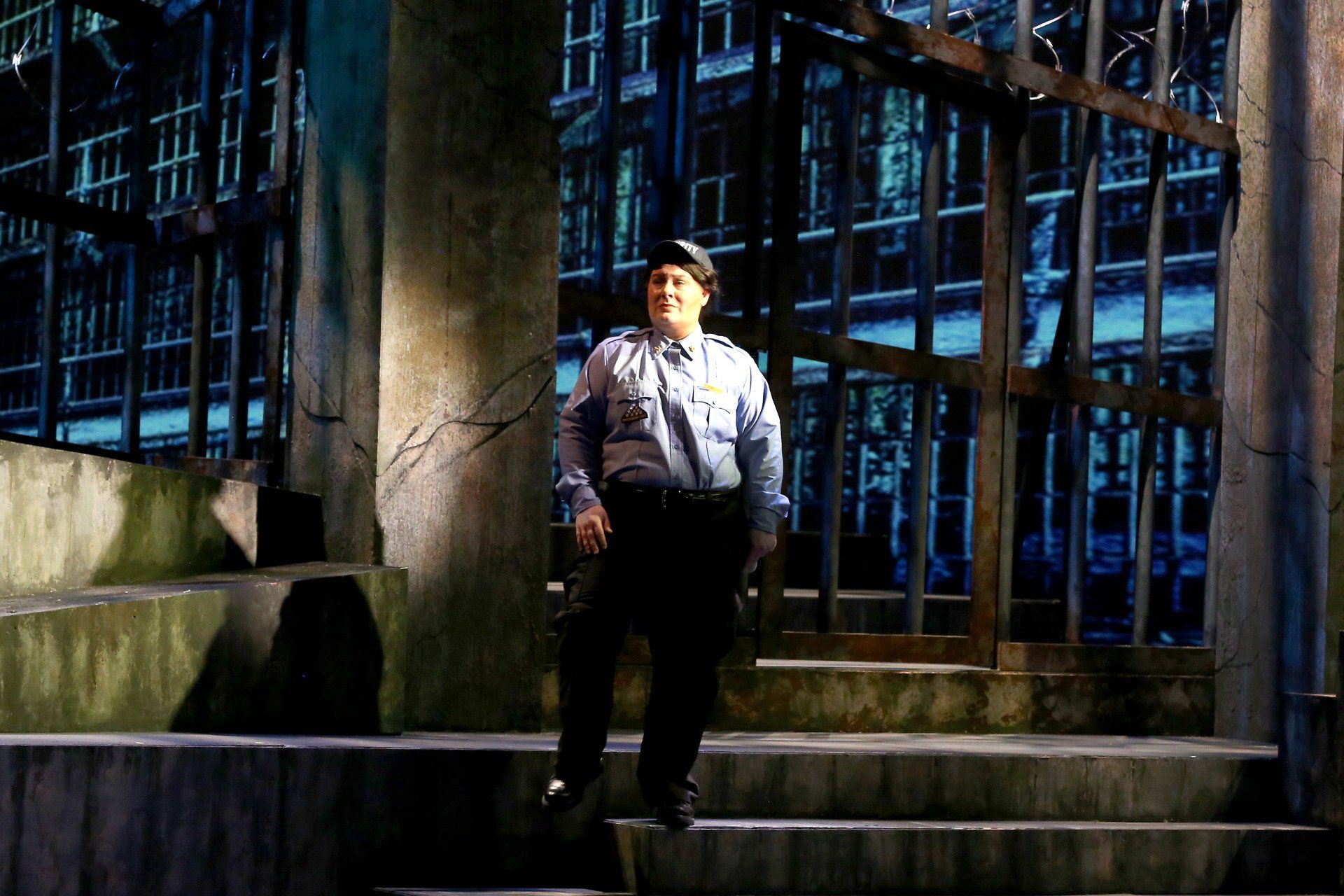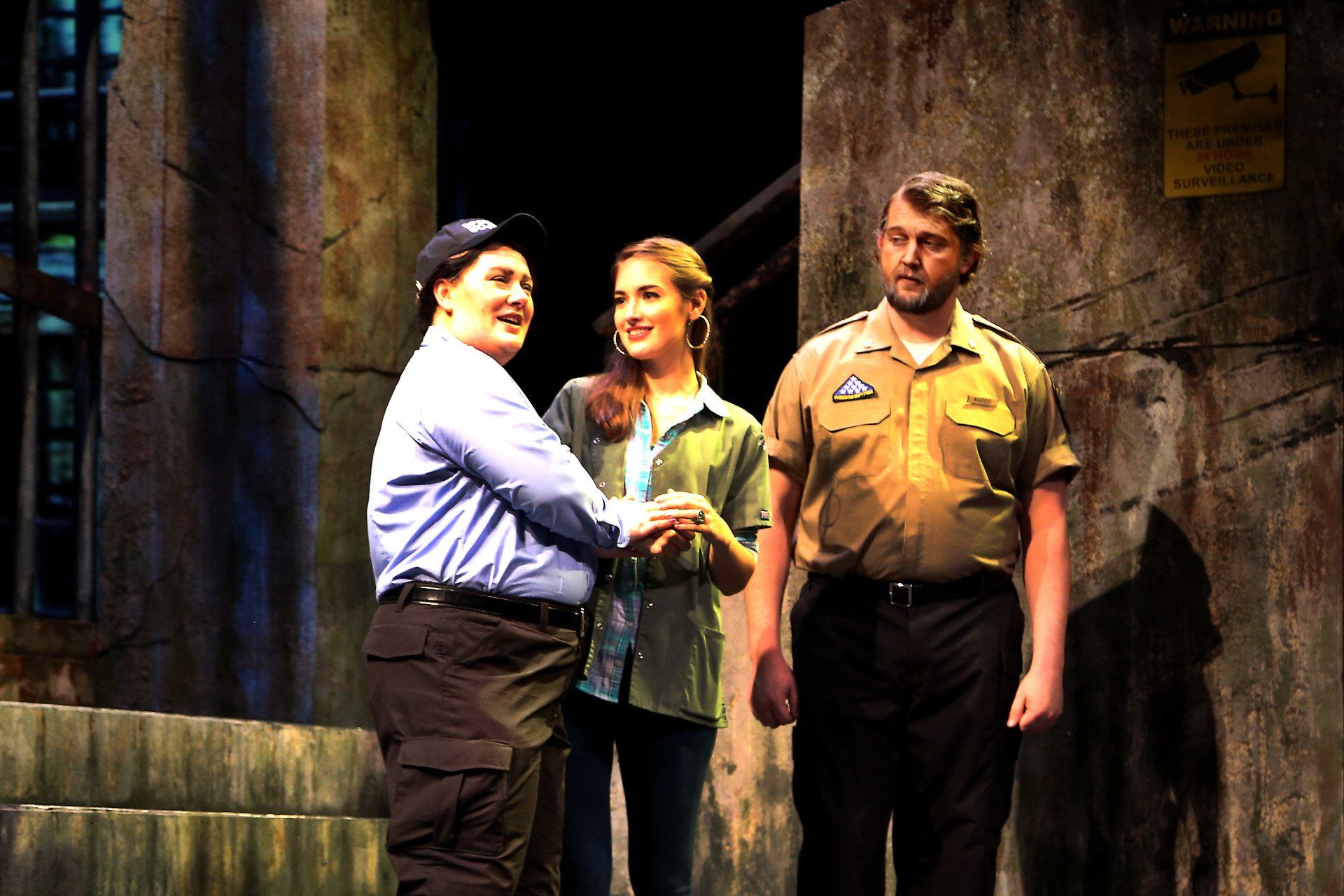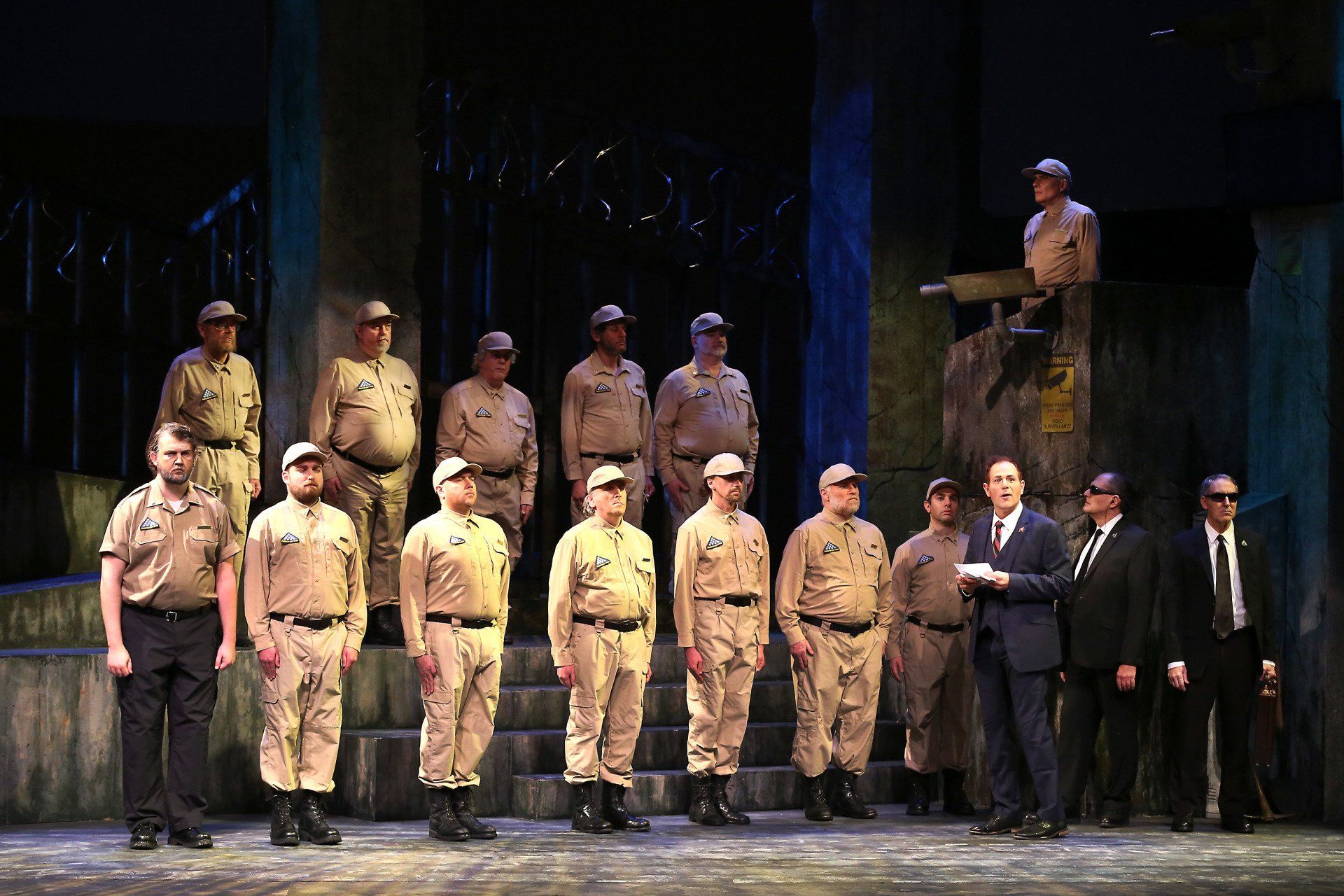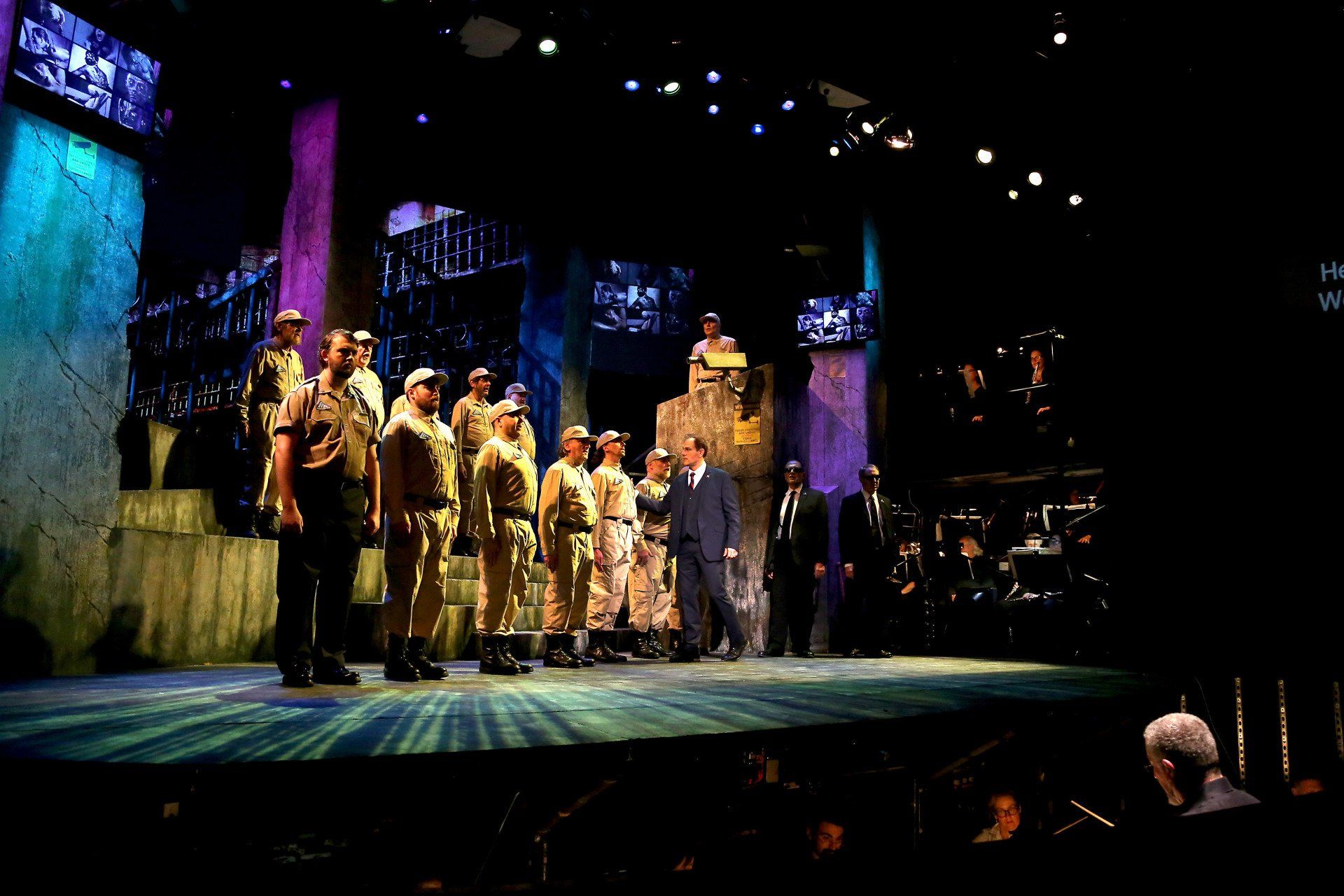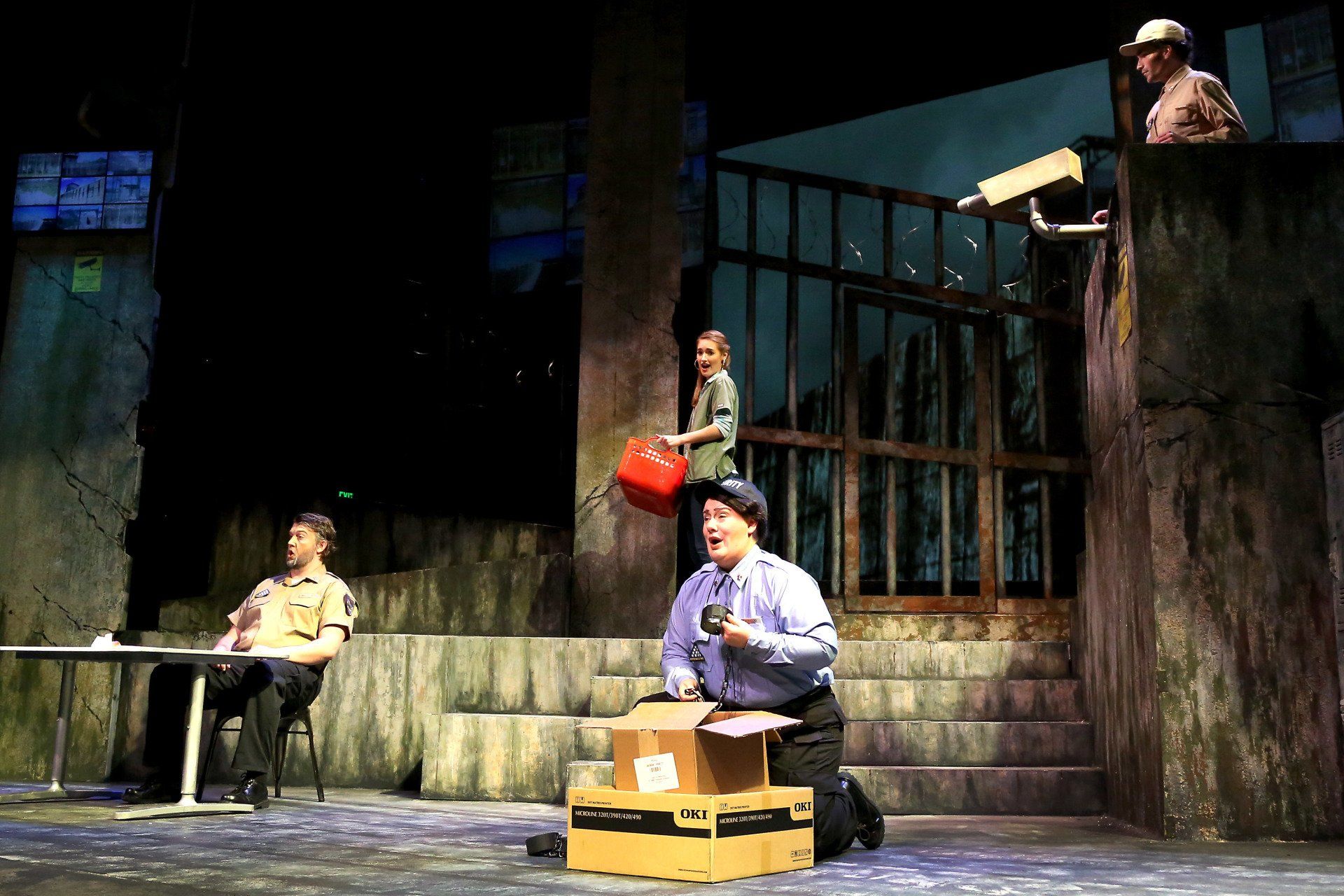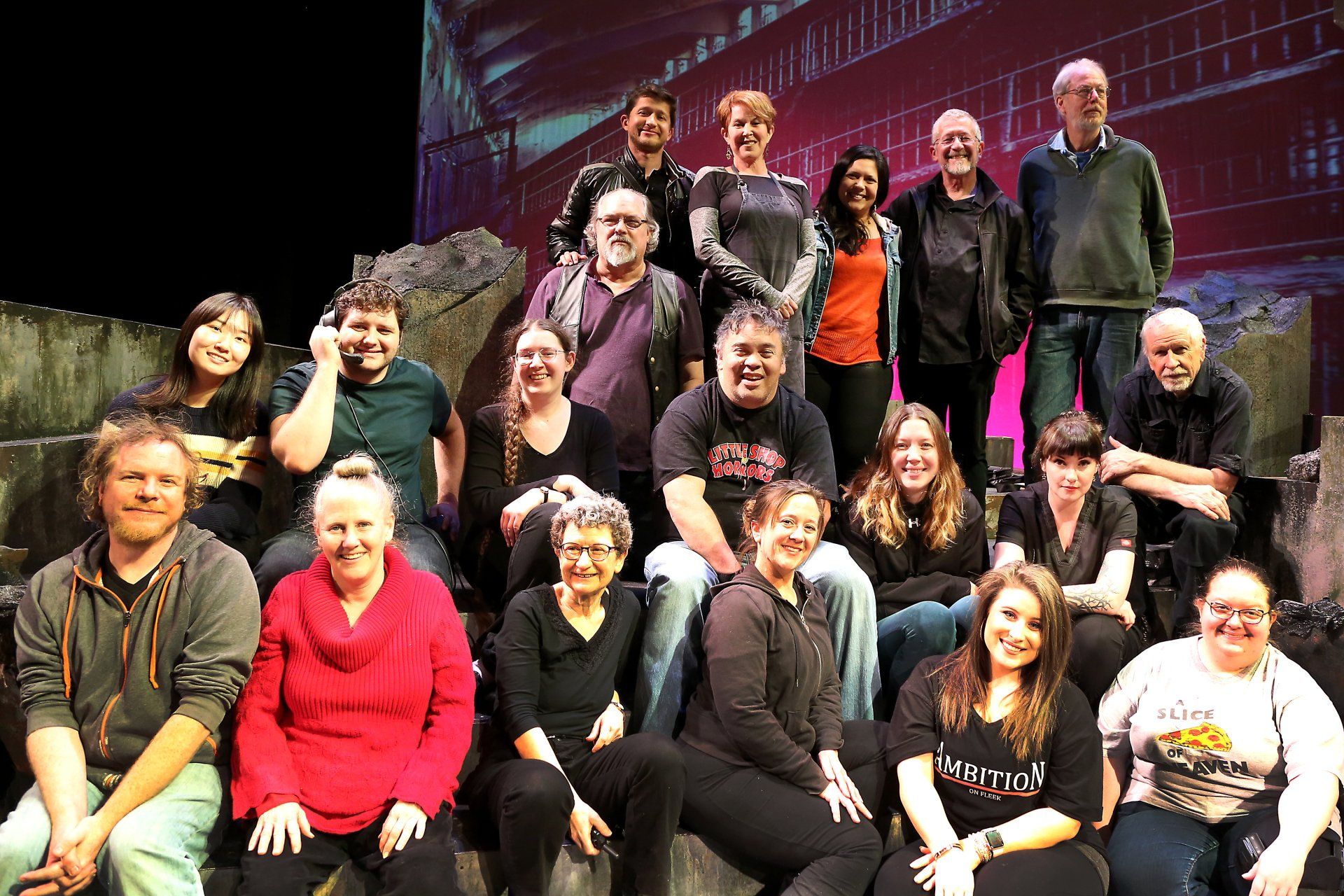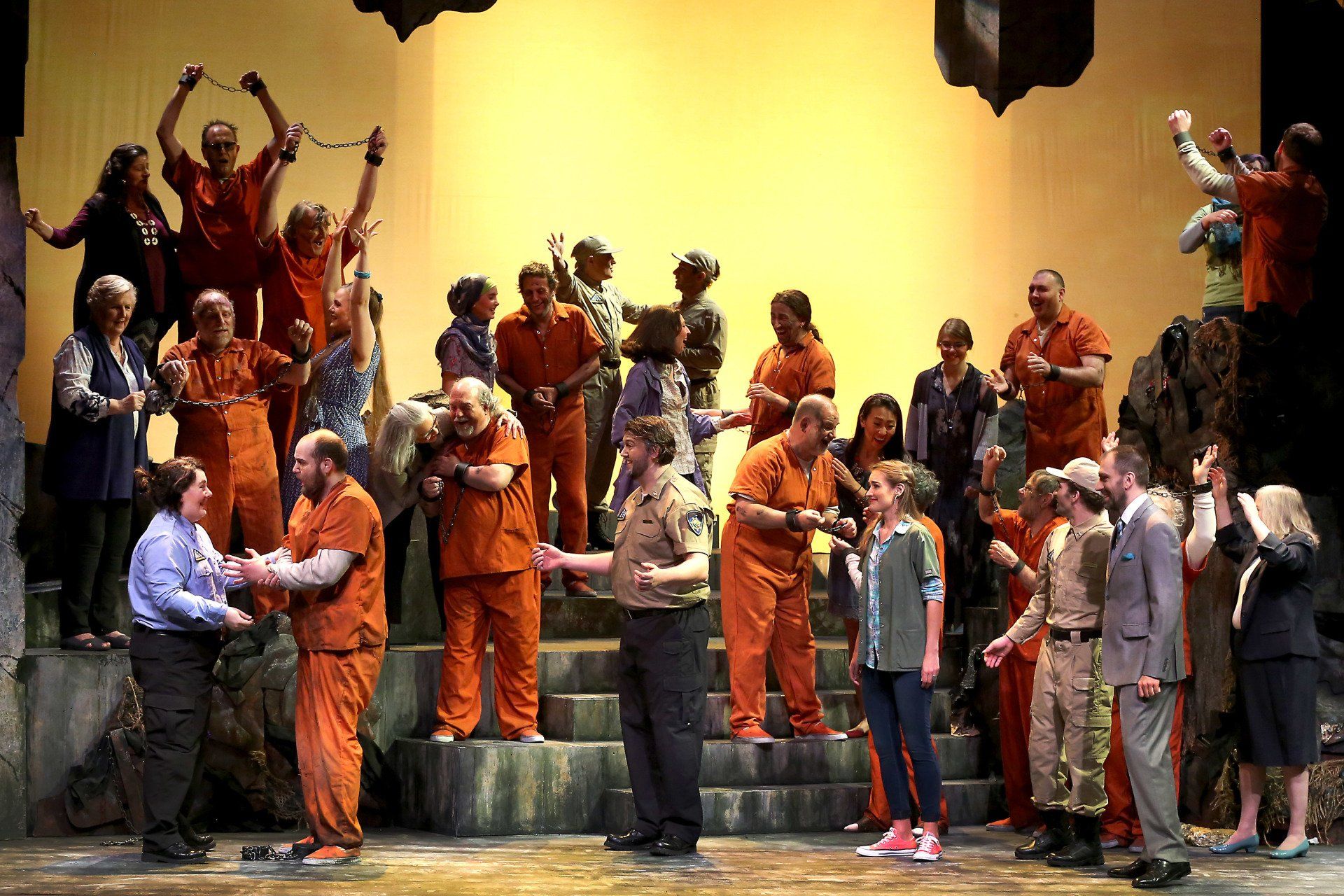Fidelio 2018 (Scroll down to the Media Gallery for video and photos and press and reviews)
Fidelio
Ludwig van Beethoven
Libretto by Joseph Sonnleithner and Georg Friedrich Treitschte
based
Baseed on the play Léonore, ou l'Amour conjugal
by Jean Nicolas Bouilly
World Premiere: Theater an der Wien - Vienna - November 20, 1805
West Bay Opera premiere: February 13, 1970
Sung in German, with English titles
Friday, February 16 - 8:00 p.m.
Sunday, February 18 - 2:00 p.m.
Saturday, February 24 - 8:00 p.m.
Sunday, February 25 - 2:00 p.m.
at the Lucie Stern Theatre
1305 Middlefield Road,
Palo Alto, California 94301
Creative Team
José Luis Moscovich - Gen. Dir. and Conductor
Ragnar Conde - Stage Director
Peter Crompton - Set and Projection Designer
Callie Floor - Costume Designer
Steven Mannshardt - Lighting Designer
Frederic Boulay - Projection Co-designer
Shirley Benson - Props Designer
Lisa Cross - Makeup Designer
Giselle Lee - Sound Designer
Cast
Leonora - Meredith MecumFlorestan - Brent Turner
Rocco - Benjamin Brady
Pizarro - Krassen Karagiozov
Marzelline - Kate Fruchterman
Jaquino - Carmello Tringali
Don Fernando - Kiril Havezov
First Prisoner - Jackson Beaman
Second Prisoner - Steven Boisvert
Leonore undestudy - Natalie Erskine
Chorus
Mark Baushke, Jackson Beaman, Joanne Bogart, Stephen Boisvert, Geordie Burdick, JoAnn Close, Natalie Erskine*, Sophia Gever, Inna Gitman, Michael Good, Christopher Hawks, Barry Hayes, Terry Hayes, Jeffrey Lampert*, Rachel Law*, Nina McBride, Mark Nelson, Joanne Newman, Erwin Oertli, Petra-Gerda Paul*, Clare Riley*, Philip Schwarz, Christian Voitenleitner, Paul Wendt
Orchestra
Kristina Anderson - concertmasterViolin I: Judy Kmetko, Virginia Smedberg, Andrew LanViolin II: Rebecca McCormick, Lisa Zadek, Hazel KeelanViola: Rachel McGuire, Daria D'Andrea, Stephen MooreCello: Evan Kahn, Bridget Pasker, Jopseph WoodwardBass: Christy CrewsFlute: Michelle CaimottoPiccolo: Vivian BoudreauxOboe: Peter Lemberg/Meave CoxClarinet: Art Austin, Sue Macy;Bassoon: Carolyn LockhartBassoon II/Contrabassoon: Susan DiasHorn: Susan Vollmer, Diane RyanTrumpet: Rick Leder, Steven AndersonTrombone: Craig Whitwell, Michael CushingTimpani: Don BakerPersonnel Manager: Christy CrewsLibrarian: Virginia Smedberg
Production Staff
WEST BAY OPERA STAFF
Technical Director: David Gardner
Producer: Fernanda CarvalhoAsst. Costume Shop Supervisor: Merna BlackOrchestra Manager: Christy CrewsOrchestra Librarian: Virginia SmedbergClick below to see the
FIDELIO PRODUCTION STAFF
Fidelio 2018 - Media Gallery
PRODUCTION VIDEOS
Fidelio 2018 - Media Gallery
PRODUCTION PHOTOS
All photos by Otak Jump
Fidelio 2018 - Press and Reviews
